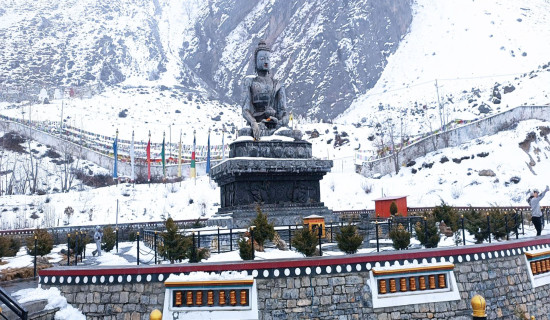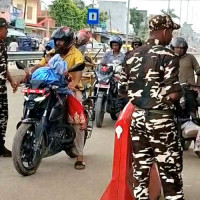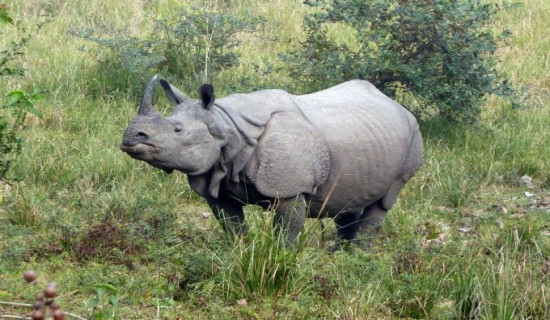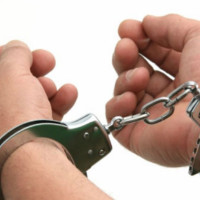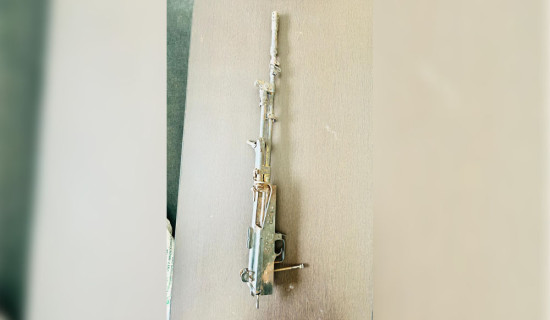- Wednesday, 4 February 2026
Without elections, there is no democracy: Shrestha
After 30 years of partyless Panchayat rule, Nepal took its first steps toward multi-party democracy in 1991. Surya Prasad Shrestha conducted the first general election held in 1991 after the restoration of multi-party democracy in the capacity of Chief Election Commissioner. Today, following the dissolution of the House of Representatives, the country is now preparing for an election. To better understand the evolution of Nepal’s electoral system, the current challenges, and the role of youth in shaping the nation’s democratic future, Sushma Maharjan of The Rising Nepal, along with the team from Gorkhapatra, spoke with former Chief Election Commissioner Surya Prasad Shrestha.
Shrestha, who has been actively involved in the electoral system and democratic institutional development for over three decades, has shared his clear views on various topics, ranging from the current political situation to the potential for upcoming elections, constitutional timelines, internal party preparations, and the need for reforms. Excerpts:
After 30 years of Panchayat rule, the first multi-party election of 1991 was conducted under your leadership. Now, following the dissolution of the House of Representatives, the country is heading to a general election. What fundamental differences do you observe between these two elections?
The election of 1991, held after 30 years of the Panchayat system, was historically significant. I had the opportunity to oversee and observe that election closely. After the restoration of multiparty democracy, we again faced upheaval, movements that dissolved everything from Parliament to local bodies.
When I compare that period with the present, the differences are profound. Elections under the Panchayat era were ‘elections without political parties’, lacking guarantees of human rights, civil liberties, and democratic freedoms. They did not meet the standards expected of a republic. Often, those elections were more symbolic than substantive, designed to create the appearance of representation within a tightly controlled system.
The electoral process itself was fundamentally different. When I was tasked with conducting the 1991 general election, we had to overhaul almost everything. It was the first multi-party election after decades, so we needed major structural changes, new laws, new administrative systems, and new procedures to ensure fairness and participation.
Following the restoration of democracy, our electoral system underwent gradual evolution. Transparency improved, the responsibilities of election officials became clearer, and the process became more credible. Nepal has conducted around 15-16 general elections, and by many international comparisons, it has developed one of the more robust election practices in South Asia.
Today, our electoral mechanisms are far more advanced. However, time has become our biggest challenge. The date for the upcoming election has been fixed for March 5, yet the Gen Z movement of September 8 and 9 has created an atmosphere of fear and uncertainty. Young people are raising new demands as the election approaches. We must carefully assess whether these demands can be accommodated without jeopardising the election’s integrity.
It is often said in a democracy that ‘no vote goes wasted.’ Yet some argue that the current situation has emerged because losing votes failed to strengthen the opposition. Do you agree?
There are many ways to choose leaders around the world, but elections remain the most legitimate method. In any election, someone wins and someone becomes the opposition. But a democracy functions well only when the opposition is strong, responsible, and capable.
If opposition parties are weak, undisciplined, or fragmented, the democratic process suffers. So, while no vote is ever truly wasted, the failure of opposition parties to develop institutional capacity can make the electorate feel that their votes have not contributed to a healthier balance of power.
Low voter turnout is sometimes interpreted as a form of ‘No Vote.’ How reasonable is this interpretation?
We are still practising democratic principles, but challenges persist. The government, cabinet, and state institutions must function with integrity and efficiency. People deserve accurate information, transparency, and responsive governance.
Even the Supreme Court’s decisions must be respected. When court orders are delayed or ignored, the system weakens. Sometimes implementation is delayed simply because officials fail to understand legal requirements, but that is not an acceptable excuse. A democracy survives only when institutions work with discipline.
In 1991, there were about 20 political parties. Today, more than 125 parties are registered. Should the system of party registration be revised ?
Yes, I believe reform is necessary. In 1991, around 20 parties contested the election. Today, the list has grown to over 125. Such excessive fragmentation creates instability and confuses voters.
The federal structure has added further complications. We have witnessed weak provincial governments, unstable coalitions, constant floor-crossing, party switching, and frequent splits. These trends show that many parties register enthusiastically but lack ideology, organisation, or long-term commitment. Some appear driven by opportunism, which ultimately destabilises governance.
Therefore, party reform is essential. Parties must meet certain organisational, ideological, and electoral standards before they are allowed to contest. Without such discipline, the political system becomes unmanageable.
Discussions frequently arise about adopting a directly elected president or prime minister. What structural reforms do you consider important for Nepal’s electoral system?
When we adopted the parliamentary system, it was after extensive debate among legal, constitutional, and political experts. This system ensured representation from all regions and levels, from local governments to the federal structure, supporting nationwide participation and development.
Regarding voting rights, the first priority is that voters must understand the conditions of the places where they live. As for voting rights of Nepalis abroad, we lack the necessary time and administrative capacity to implement such a system in the upcoming election. Introducing it hastily would create confusion and undermine electoral values.
Similarly, adopting a direct leadership election for the head of government or state carries risks. If the wrong leader is elected, the system could drift toward authoritarianism. Such structural reforms must be approached with caution.
A ‘special election’ has been scheduled for March 5 following the mandate of the Gen Z movement. Since regular periodic elections were not held, how do you view their legitimacy and historical importance?
The upcoming election is being held under very critical circumstances. For it to be meaningful, it must be conducted on time and without interference. The Election Commission is a constitutional body; neither the government nor other factors should intervene.
I have conducted four national elections. Nepal has the capacity to conduct timely and credible elections. Even the first election after the Panchayat era, which had about 65 per cent voter turnout despite the nation’s geography and history, was recognised by the United Nations as a model election. This demonstrates our ability, if we remain committed.
Major political parties are still facing internal disputes. Only Nepali Congress decided to contest the election, while the CPN-UML opposed the election. How should the government and the Election Commission proceed?
Mass media play a decisive role in shaping public opinion. When media outlets fail to uphold national interest, they can mislead the public and destabilise the country. In recent times, some media platforms have promoted hate speech toward political parties and leaders. If such trends continue, future elections may not remain transparent.
Therefore, the Election Commission and the government must actively monitor and watch dog media behaviour to ensure that it supports democratic values rather than undermines them.
The government and Election Commission say they are holding consultations with the political parties, but top leaders are not directly communicating. How does this affect election management?
Yes, such discussions are important. The Election Commission is performing its responsibilities and has been holding dialogues with political parties. But the government also has political duties to fulfil. If the government maintains cooperative relations with the parties, election management becomes much easier.
After the Gen Z movement, young people have become extraordinarily active. This could either erode the traditional party base or lead to a significant change in voter priorities. What is your assessment?
Gen Z includes the children of those who have exercised their voting rights over the decades. A new atmosphere will emerge in the election. Both they and their guardians must remain vigilant to prevent them from being misled, as more than 800,000 new Gen Z voters have been enlisted. Nepal typically adds around one million new voters every five years. Managing this growing voter base is challenging but also holds promise for democracy.
In Nepal’s political history, no Parliament has ever completed a full term without controversy. Is this due to constitutional weaknesses, political culture, or simply part of democratic evolution? Is our democratic practice at risk?
Nepal’s journey toward democracy, beginning around 1950, has been long and painful. Many sacrificed their lives for democratic values, not only in recent movements but in the struggles of earlier generations. We must remember their contributions.
Yet despite these sacrifices, our democratic institutions have not matured as they should have. We have not been able to build strong constitutional mechanisms or a stable political culture. Even in the early years, rebellion and unrest occurred repeatedly. It is a matter of people to think: Why do governments fail? Who is responsible?
At times, even a sitting Prime Minister was jailed. These incidents reflect deep flaws in our political culture and a lack of trust in constitutional processes. When leaders bypass democratic norms, power gets misused and the system weakens.
Today, as well, public faith in democracy is declining. Some argue that elections are pointless. But without elections, there is no democracy; this is an undeniable truth.
Social media has transformed public discourse. Discussions are underway about voting rights for citizens abroad and expanding access for various groups. What is your view?
It is not possible to fulfil every demand immediately. The government must prioritise. Citizens need development, roads, water, electricity, education, sanitation, and their elected representatives must ensure delivery.
We have both legal and time constraints. Introducing new voting categories or procedures shortly before the election could create delays so severe that the election might never happen.
If someone living abroad for years, disconnected from local realities, votes without understanding the ground situation, it raises questions about the meaning of representation. Some negative tendencies have emerged in this debate, and they need careful correction.
Furthermore, if we allow voting from abroad, it must be for all citizens abroad. Around six million Nepalis live in India alone. Should they not be included? These complex issues require discussion, not rushed decisions. Unrealistic demands should not be imposed upon the election process.
Finally, what is your message to political parties and the new generation?
Political parties and young citizens must remain committed to the nation, its identity, sovereignty, and future. We have struggled for nearly eighty years to achieve democracy and a republic. Our ancestors made immense sacrifices. The responsibility now lies with us to protect these achievements and build a stable, functioning system for future generations.



